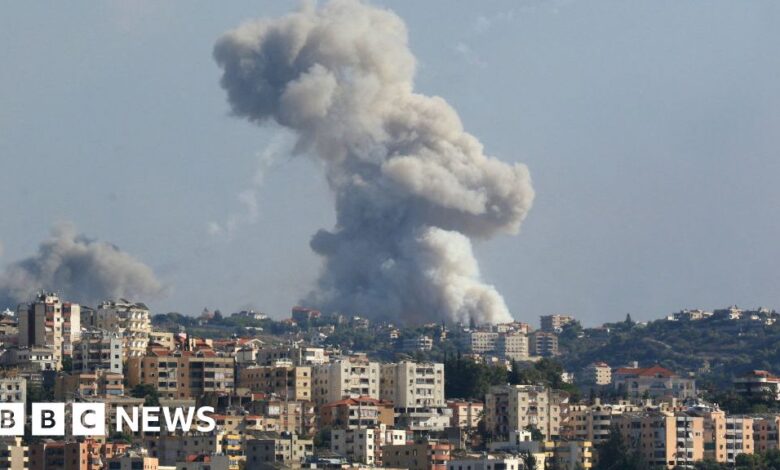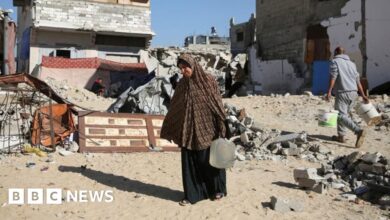Israel believes it has weakened Hezbollah but escalation still carries risks

Monday was the bloodiest day in Lebanon since the 2006 war between Hezbollah and Israel.
Israel launched a series of major airstrikes this morning that killed 492 people according to the Lebanese government and Israel is warning of more attacks to come.
The war was escalating rapidly, a process accelerated by the scale of Israel’s air offensive.
They are warning civilians to leave the area they are targeting. They say the next target will be the Bekaa Valley in northeastern Lebanon, which is a Hezbollah stronghold.
Even before the current escalation, more than 100,000 Lebanese had fled their homes due to Israeli airstrikes and had no immediate hope of returning.
We are witnessing another escalation of tensions from the Israeli side.
Perhaps they calculate that Hezbollah is now in a weak position, so this is their opportunity to really damage the organization and change the strategic picture in the hills and towns on both sides of the border between Israel and Lebanon.
While the conflict between Israel and Hezbollah has been going on for decades, the current war between them began the day after Hamas’ attack on October 7 last year.
Hezbollah has begun a limited but sustained campaign of rocket fire across the border, attempting to pin down the Israeli military and inflict damage on Israeli property and civilians. Some 60,000 Israelis have been forced to evacuate to the center of the country. In recent days, bringing them home has been added to Israel’s list of war objectives.
The United States, Britain and other allies – and critics – of Israel believe the only hope of resolving this dangerous crisis is a ceasefire in Gaza.
Hezbollah leader Hassan Nasrallah has said that attacks on Israel will continue until a ceasefire in Gaza is implemented. But it seems pretty clear at this point that neither Hamas nor Israeli leaders are willing to accept the deal the United States has offered.
The war itself has received widespread support from the Israeli people, although Prime Minister Benjamin Netanyahu remains unpopular with a large segment of the Israeli electorate, despite his improved poll numbers.
Many Israelis also think Netanyahu is a terrible leader who lied and abandoned the hostages in Gaza. So he is a very controversial figure, but with the support of his right-wing supporters in parliament, he is politically secure.
His decision to attack was a risky one.
While Hezbollah is wounded, it still has the capacity to strike back. And that is why Israel’s friends and enemies are still preparing for the worst.




